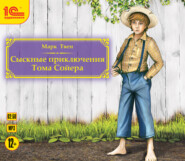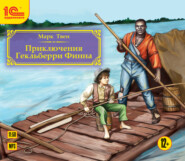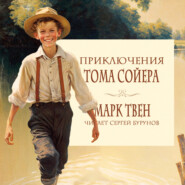По всем вопросам обращайтесь на: info@litportal.ru
(©) 2003-2024.
✖
Goldsmith's Friend Abroad Again
Настройки чтения
Размер шрифта
Высота строк
Поля
Another of our company was a boy of fourteen who had been watched for some time by officers and teachers, and repeatedly detected in enticing young girls from the public schools to the lodgings of gentlemen down town. He had been furnished with lures in the form of pictures and books of a peculiar kind, and these he had distributed among his clients. There were likenesses of fifteen of these young girls on exhibition (only to prominent citizens and persons in authority, it was said, though most people came to get a sight) at the police headquarters, but no punishment at all was to be inflicted on the poor little misses. The boy was afterward sent into captivity at the House of Correction for some months, and there was a strong disposition to punish the gentlemen who had employed the boy to entice the girls, but as that could not be done without making public the names of those gentlemen and thus injuring them socially, the idea was finally given up.
There was also in our cell that night a photographer (a kind of artist who makes likenesses of people with a machine), who had been for some time patching the pictured heads of well-known and respectable young ladies to the nude, pictured bodies of another class of women; then from this patched creation he would make photographs and sell them privately at high prices to rowdies and blackguards, averring that these, the best young ladies of the city, had hired him to take their likenesses in that unclad condition. What a lecture the police judge read that photographer when he was convicted! He told him his crime was little less than an outrage. He abused that photographer till he almost made him sink through the floor, and then he fined him a hundred dollars. And he told him he might consider himself lucky that he didn’t fine him a hundred and twenty-five dollars. They are awfully severe on crime here.
About two or two and a half hours after midnight, of that first experience of mine in the city prison, such of us as were dozing were awakened by a noise of beating and dragging and groaning, and in a little while a man was pushed into our den with a “There, d – n you, soak there a spell!”—and then the gate was closed and the officers went away again. The man who was thrust among us fell limp and helpless by the grating, but as nobody could reach him with a kick without the trouble of hitching along toward him or getting fairly up to deliver it, our people only grumbled at him, and cursed him, and called him insulting names – for misery and hardship do not make their victims gentle or charitable toward each other. But as he neither tried humbly to conciliate our people nor swore back at them, his unnatural conduct created surprise, and several of the party crawled to him where he lay in the dim light that came through the grating, and examined into his case. His head was very bloody and his wits were gone. After about an hour, he sat up and stared around; then his eyes grew more natural and he began to tell how that he was going along with a bag on his shoulder and a brace of policemen ordered him to stop, which he did not do – was chased and caught, beaten ferociously about the head on the way to the prison and after arrival there, and finally I thrown into our den like a dog.
And in a few seconds he sank down again and grew flighty of speech. One of our people was at last penetrated with something vaguely akin to compassion, may be, for he looked out through the gratings at the guardian officer, pacing to and fro, and said:
“Say, Mickey, this shrimp’s goin’ to die.”
“Stop your noise!” was all the answer he got. But presently our man tried it again. He drew himself to the gratings, grasping them with his hands, and looking out through them, sat waiting till the officer was passing once more, and then said:
“Sweetness, you’d better mind your eye, now, because you beats have killed this cuss. You’ve busted his head and he’ll pass in his checks before sun-up. You better go for a doctor, now, you bet you had.”
The officer delivered a sudden rap on our man’s knuckles with his club, that sent him scampering and howling among the sleeping forms on the flag-stones, and an answering burst of laughter came from the half dozen policemen idling about the railed desk in the middle of the dungeon.
But there was a putting of heads together out there presently, and a conversing in low voices, which seemed to show that our man’s talk had made an impression; and presently an officer went away in a hurry, and shortly came back with a person who entered our cell and felt the bruised man’s pulse and threw the glare of a lantern on his drawn face, striped with blood, and his glassy eyes, fixed and vacant. The doctor examined the man’s broken head also, and presently said:
“If you’d called me an hour ago I might have saved this man, may be too late now.”
Then he walked out into the dungeon and the officers surrounded him, and they kept up a low and earnest buzzing of conversation for fifteen minutes, I should think, and then the doctor took his departure from the prison. Several of the officers now came in and worked a little with the wounded man, but toward daylight he died.
It was the longest, longest night! And when the daylight came filtering reluctantly into the dungeon at last, it was the grayest, dreariest, saddest daylight! And yet, when an officer by and by turned off the sickly yellow gas flame, and immediately the gray of dawn became fresh and white, there was a lifting of my spirits that acknowledged and believed that the night was gone, and straightway I fell to stretching my sore limbs, and looking about me with a grateful sense of relief and a returning interest in life. About me lay the evidences that what seemed now a feverish dream and a nightmare was the memory of a reality instead. For on the boards lay four frowsy, ragged, bearded vagabonds, snoring – one turned end-for-end and resting an unclean foot, in a ruined stocking, on the hairy breast of a neighbour; the young boy was uneasy, and lay moaning in his sleep; other forms lay half revealed and half concealed about the floor; in the furthest corner the gray light fell upon a sheet, whose elevations and depressions indicated the places of the dead man’s face and feet and folded hands; and through the dividing bars one could discern the almost nude forms of the two exiles from the county jail twined together in a drunken embrace, and sodden with sleep.
By and by all the animals in all the cages awoke, and stretched themselves, and exchanged a few cuffs and curses, and then began to clamour for breakfast. Breakfast was brought in at last – bread and beefsteak on tin plates, and black coffee in tin cups, and no grabbing allowed. And after several dreary hours of waiting, after this, we were all marched out into the dungeon and joined there by all manner of vagrants and vagabonds, of all shades and colours and nationalities, from the other cells and cages of the place; and pretty soon our whole menagerie was marched up-stairs and locked fast behind a high railing in a dirty room with a dirty audience in it. And this audience stared at us, and at a man seated on high behind what they call a pulpit in this country, and at some clerks and other officials seated below him – and waited. This was the police court.
The court opened. Pretty soon I was compelled to notice that a culprit’s nationality made for or against him in this court. Overwhelming proofs were necessary to convict an Irishman of crime, and even then his punishment amounted to little; Frenchmen, Spaniards, and Italians had strict and unprejudiced justice meted out to them, in exact accordance with the evidence; negroes were promptly punished, when there was the slightest preponderance of testimony against them; but Chinamen were punished always, apparently. Now this gave me some uneasiness, I confess. I knew that this state of things must of necessity be accidental, because in this country all men were free and equal, and one person could not take to himself an advantage not accorded to all other individuals. I knew that, and yet in spite of it I was uneasy.
And I grew still more uneasy, when I found that any succored and befriended refugee from Ireland or elsewhere could stand up before that judge and swear, away the life or liberty or character of a refugee from China; but that by the law of the land the Chinaman could not testify against the Irishman. I was really and truly uneasy, but still my faith in the universal liberty that America accords and defends, and my deep veneration for the land that offered all distressed outcasts a home and protection, was strong within me, and I said to myself that it would all come out right yet.
Ah Song hi.
Letter VII
San Francisco, 18—.
Dear Ching-Foo: I was glad enough when my case came up. An hour’s experience had made me as tired of the police court as of the dungeon. I was not uneasy about the result of the trial, but on the contrary felt that as soon as the large auditory of Americans present should hear how that the rowdies had set the dogs on me when I was going peacefully along the street, and how, when I was all torn and bleeding, the officers arrested me and put me in jail and let the rowdies go free, the gallant hatred of oppression which is part of the very flesh and blood of every American would be stirred to its utmost, and I should be instantly set at liberty. In truth I began to fear for the other side. There in full view stood the ruffians who had misused me, and I began to fear that in the first burst of generous anger occasioned by the revealment of what they had done, they might be harshly handled, and possibly even banished the country as having dishonoured her and being no longer worthy to remain upon her sacred soil.
The official interpreter of the court asked my name, and then spoke it aloud so that all could hear. Supposing that all was now ready, I cleared my throat and began – in Chinese, because of my imperfect English:
“Hear, O high and mighty mandarin, and believe! As I went about my peaceful business in the street, behold certain men set a dog on me, and—
“Silence!”
It was the judge that spoke. The interpreter whispered to me that I must keep perfectly still. He said that no statement would be received from me – I must only talk through my lawyer.
I had no lawyer. In the early morning a police court lawyer (termed, in the higher circles of society, a “shyster”) had come into our den in the prison and offered his services to me, but I had been obliged to go without them because I could not pay in advance or give security. I told the interpreter how the matter stood. He said I must take my chances on the witnesses then. I glanced around, and my failing confidence revived.
“Call those four Chinamen yonder,” I said. “They saw it all. I remember their faces perfectly. They will prove that the white men set the dog on me when I was not harming them.”
“That won’t work,” said he. “In this country white men can testify against Chinamen all they want to, but Chinamen ain’t allowed to testify against white men!”
What a chill went through me! And then I felt the indignant blood rise to my cheek at this libel upon the Home of the Oppressed, where all men are free and equal – perfectly equal – perfectly free and perfectly equal. I despised this Chinese-speaking Spaniard for his mean slander of the land that was sheltering and feeding him. I sorely wanted to sear his eyes with that sentence from the great and good American Declaration of Independence which we have copied in letters of gold in China and keep hung up over our family altars and in our temples – I mean the one about all men being created free and equal.
But woe is me, Ching Foo, the man was right. He was right, after all. There were my witnesses, but I could not use them. But now came a new hope. I saw my white friend come in, and I felt that he had come there purposely to help me. I may almost say I knew it. So I grew easier. He passed near enough to me to say under his breath, “Don’t be afraid,” and then I had no more fear. But presently the rowdies recognised him and began to scowl at him in no friendly way, and to make threatening signs at him. The two officers that arrested me fixed their eyes steadily on his; he bore it well, but gave in presently, and dropped his eyes. They still gazed at his eyebrows, and every time he raised his eyes he encountered their winkless stare – until after a minute or two he ceased to lift his head at all. The judge had been giving some instructions privately to some one for a little while, but now he was ready to resume business. Then the trial so unspeakably important to me, and freighted with such prodigious consequence to my wife and children, began, progressed, ended, was recorded in the books, noted down by the newspaper reporters, and forgotten by everybody but me – all in the little space of two minutes!
“Ah Song Hi, Chinaman. Officers O’Flannigan and O’Flaherty, witnesses. Come forward, Officer O’Flannigan.”
Officer—“He was making a disturbance in Kearny street.”
Judge—“Any witnesses on the other side?” No response. The white friend raised his eyes encountered Officer O’Flaherty’s – blushed a little – got up and left the courtroom, avoiding all glances and not taking his own from the floor.
Judge—“Give him five dollars or ten days.”
In my desolation there was a glad surprise in the words; but it passed away when I found that he only meant that I was to be fined five dollars or imprisoned ten days longer in default of it.
There were twelve or fifteen Chinamen in our crowd of prisoners, charged with all manner of little thefts and misdemeanors, and their cases were quickly disposed of, as a general thing. When the charge came from a policeman or other white man, he made his statement and that was the end of it, unless the Chinaman’s lawyer could find some white person to testify in his client’s behalf, for, neither the accused Chinaman nor his countrymen being allowed to say anything, the statement of the officers or other white person was amply sufficient to convict. So, as I said, the Chinamen’s cases were quickly disposed of, and fines and imprisonment promptly distributed among them. In one or two of the cases the charges against Chinamen were brought by Chinamen themselves, and in those cases Chinamen testified against Chinamen, through the interpreter; but the fixed rule of the court being that the preponderance of testimony in such cases should determine the prisoner’s guilt or innocence, and there being nothing very binding about an oath administered to the lower orders of our people without the ancient solemnity of cutting off a chicken’s head and burning some yellow paper at the same time, the interested parties naturally drum up a cloud of witnesses who are cheerfully willing to give evidence without ever knowing anything about the matter in hand. The judge has a custom of rattling through with as much of this testimony as his patience will stand, and then shutting off the rest and striking an average.
By noon all the business of the court was finished, and then several of us who had not fared well were remanded to prison; the judge went home; the lawyers, and officers, and spectators departed their several ways, and left the uncomely court-room to silence, solitude, and Stiggers, the newspaper reporter, which latter would now write up his items (said an ancient Chinaman to me), in the which he would praise all the policemen indiscriminately and abuse the Chinamen and dead people.
Ah Song hi.
notes
Примечания
1
Pacific and Mediterranean steamship bills.(Ed. Mem.)
2
Policeman.

















